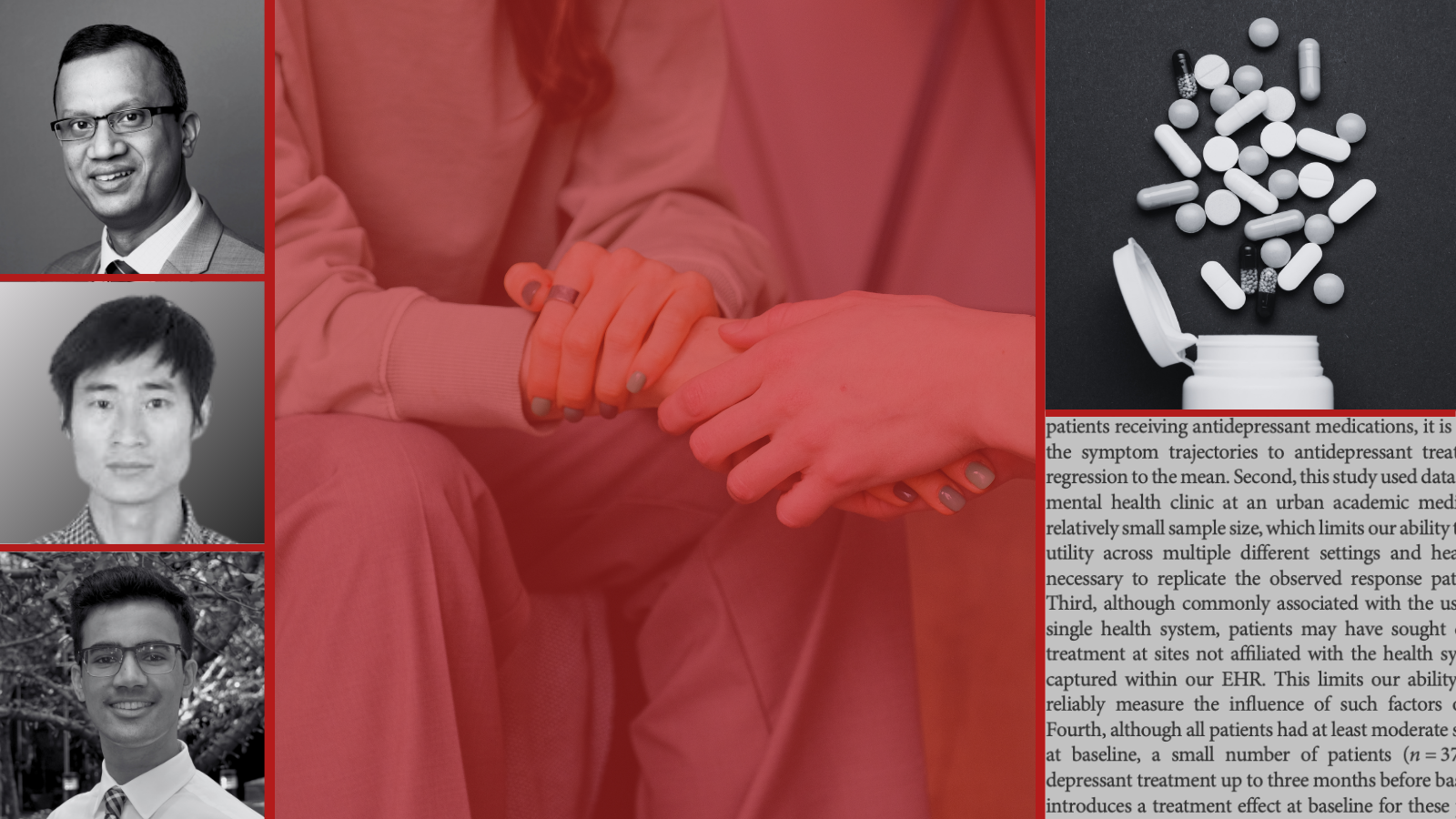
Anxious depression, whereby symptoms of depression and anxiety coexist, accounts for 42 to 78 percent of all depression cases and is associated with poorer clinical outcomes than non-anxious depression. Treatment with antidepressants is common, but response to treatment is often inconsistent, and dosage changes occur on a trial-and-error basis. While studies have explored trajectories of response to therapy over time, they are largely limited to psychotherapy treatment and do not account for oscillations in patient symptoms throughout the course of treatment.
A study in npj Mental Health Research featured in the Nature “Clinical applications of AI in mental health care” collection from Dr. Jyotishman Pathak, chief of the Division of Health Informatics and the Frances and John L. Loeb Professor of Medical Informatics, Dr. Zhenxing Xu, research associate in population health sciences, Veer Vekaria, health data scientist in population health sciences, and colleagues aimed to identify longitudinal patterns during antidepressant treatment in patients with depression and anxiety and evaluate related factors.
Researchers used group-based trajectory modeling (GBTM), a latent class analysis method, to evaluate treatment response variability. This data-driven method allows the identification of groups of patients with shared characteristics such as demographics or comorbidities. It also has demonstrated the capability to capture heterogeneity during illness and recovery.
The study revealed six distinct depression and anxiety response trajectories among 577 adult participants. These include various paths to symptom response and remission that clinicians may encounter. Similar results were observed in the depression and anxiety subgroups, with three depression subgroups showing symptom improvement and three showing nonresponses. Findings allowed for a more distinct understanding of anxiety and depression as individual conditions. Continued research on the underlying factors of individual subgroups would provide further insight into the pathophysiology of depression and anxiety, and strategies for personalized therapy.
- Highlights

